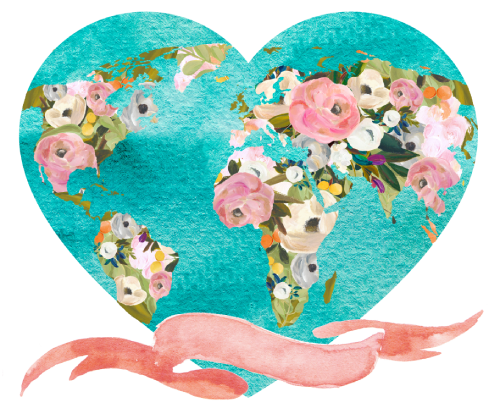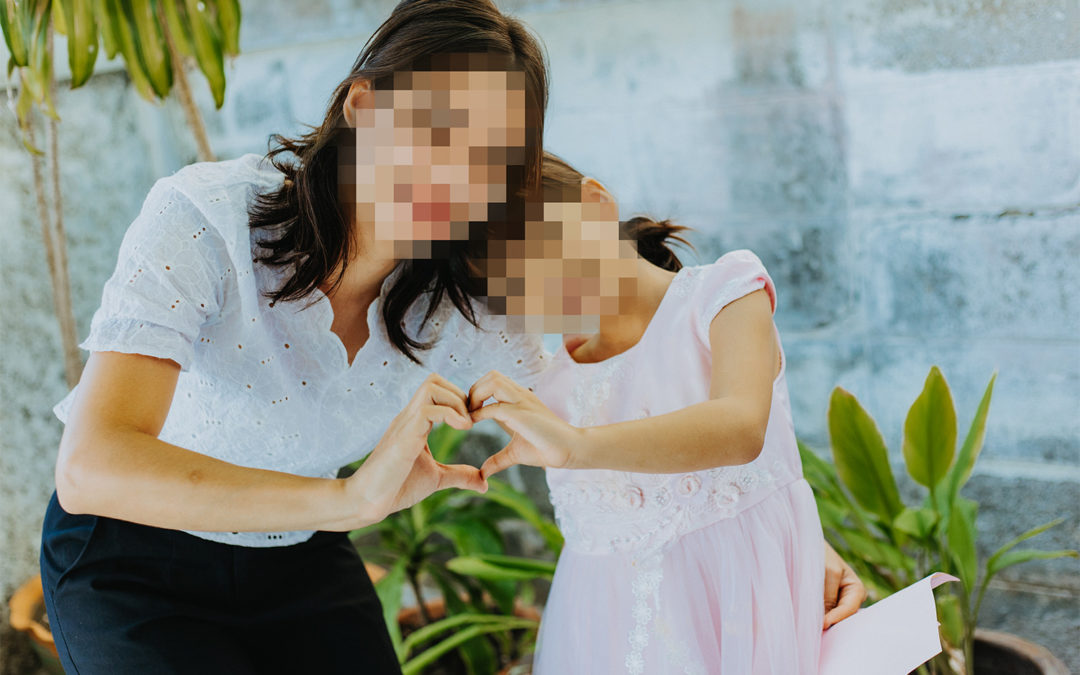An Update from The Exodus Road
When Som* first came to Freedom Home, staff members asked her: would you like to try gardening? An ambitious 22-year-old with an entrepreneur’s mind, at first Som wasn’t sure about spending time that way. But she’d chosen to come to Freedom Home with a commitment to build something different, something new. So she tried gardening.
“When I got to plant things and see them grow, it made me so happy,” she says. “It’s so good to know that I planted this, and it’s still alive.”
In many ways, that hopeful practice of planting and nurturing life is definitive of Som’s entire stay at Freedom Home — and a stark contrast from much of her past life.
Som was one of Freedom Home’s very first residents, arriving at our aftercare home in Thailand during its first month of operation in December 2021. When she first considered spending time there, she knew what was most important: being able to keep her daughter Pearl*, who had just turned 5 years old, with her. Most aftercare shelters are not equipped to accommodate kids. Som asked if there was any chance that Freedom Home might be open to letting them live there together?
“Of course!” The Exodus Road’s staff assured her. “You both are welcome to heal here together.”
When I interview Som nearly a year later, she makes it clear how important that has been. She and her daughter are inseparable. In fact, partway through the time Som and I spend talking and capturing pictures in one of Freedom Home’s quiet rooms, Pearl bursts in like a sunray. She doesn’t want to be separated from her mom. They’ve spent far too much time apart in the past, isolated by the demands of men who exploited Som for sex.
Exploitation as Survival
Som’s mom worked at a bar, where she met Som’s dad — an English man whom Som felt close to growing up. When he passed away when Som was just 12 years old, she was devastated. Her mom was left with Som’s two older half brothers, who struggled with drug addiction and illness, and Som’s younger brother and sister. Weary and grieving, Som’s mom asked her to help with their urgent financial needs.
Som wanted to help. She wanted her family to be safe and secure. “It’s my personality to help them as much as I can,” Som tells me. And by the time she was 14, she’d found a way to do that.
Som would go clubbing with friends to forget her worries. One day, one of her friends introduced her to what seemed like a way to solve the money problem. In the tourism-heavy area where Som’s family lived, a lot of older men from other countries were eager to have young women as sexual companions.
Paying for sexual services with anyone under 18 is sex trafficking — and is illegal. But tourists from wealthy nations still flock to this part of Thailand, believing it to be a place where they can buy sex from children with impunity. Som felt constant pressure to help her struggling family. Accepting this exploitation seemed like the best and only way.
The men would sometimes even take her out of the country as their vacation companion. Som was still a minor, still a child. The repeated abuse took its toll.
“This work will eat you up gradually,” Som says, her voice softened by emotion. “It will rot your heart. Every time a customer came to me, I felt like they took from me and then they let me go, like a cycle.”
Som began dulling the anguish she felt with alcohol. But that came with its own deep sense of shame. She recalls, “I felt bad to do that to my own body. But every time I was stressed, I just needed to help myself with drinking.”
Her drinking was a way to help herself where no one else would. Som’s attempts to get other support backfired: when she asked a family member to care for toddler Pearl while she was working, the family member abused Pearl. Both Som and Pearl were left traumatized and betrayed.
Counseling and Community
When Som courageously decided to seek help, Pearl was one of her biggest motivators. Som had never known any other kind of life. She didn’t know what was out there for her and her daughter. But she wanted to find out.
“I’m proud of myself that I could leave that place, but it wasn’t easy,” she candidly confesses. “There were people who helped me.”
One of those people told Som about Freedom Home. Som was drawn to the aftercare home because of their emphasis on customized care, the focus on financial stability with both job support and a monthly stipend — and most importantly, their willingness to let Pearl live there too.
With the support of the staff and her peers in the home, Som’s ambition and compassion have bloomed.
She says with a laugh, “When all the women get together, it creates chaos. But I get to adjust and learn how to live with others. I get to learn how to understand them, and at the same time, maybe see them try to understand me.”
Because Som has been there longer than most, she’s naturally grown into a supportive, caring role with other young women as they arrive. She has a passion for mentoring women beyond Freedom Home’s walls as well.
That process has been supported by the social workers who walk alongside residents with firm support and gentle empathy. One of those social workers is Bam, who has been with Som and Pearl for many months now.
“Bam is really good to me. When I have problems, I always come to her and ask for advice,” Som says. “She asks me questions to see, do I have choices that I can choose? Then I can make my own decision for that specific problem.”
That empowering therapeutic model is part of restoring the agency that was so hard to find when Som was younger, pulled in two by the demands of caring for her family and serving exploitative customers. With the renewed space to focus on herself and her daughter, Som has proved to be excellent at saving money. She’s worked several jobs. She even bought herself a scooter.
“I’m not stressed here because I get to have my own time,” Som explains. “I get to think, what is next for me? I’m so thankful to be free to think that.”
Waiting to See What Grows
The space Som and Pearl have had at Freedom Home has given both of them time to learn and explore. Som has taken English classes and entrepreneurship training. She envisions starting her own online business.
With the financial stability Som is able to build for herself, she has space to dream about other goals also. She helps the house mom with the cooking and baking at Freedom Home. She rides her scooter to the beach. She dreams of traveling the world.
6-year-old Pearl is dreaming too, safe enough to simply be a child. She has received consistent play therapy that supports her as she works through her own abuse and trauma. She’s going to school, learning basic subjects like English and Math. She loves drawing and painting, and Freedom Home is bedecked with her handiwork.
After we’re done with our interview, Som and I go into the garden. She wants to show me what she’s been planting, walk me past rows of expectant pots beside the patio. Some of them she identifies, like an avocado seed. But when I ask what’s in a few other pots, she laughs and admits she doesn’t know. She has no idea what will come from the seeds she planted there: she’s waiting to find out.
As I watch this powerful, intelligent young woman tracing her fingers through the dirt, listening to her daughter play nearby, I’m struck by how powerful it will be to see her continue to grow.
What does it take to position a survivor in a place where they can grow like that? Som said it best when she spoke these powerful words: “I feel like my heart is pure. I felt like, when I worked as a sex worker, my heart wasn’t pure at all. Someone could buy me with money. But now? Money cannot buy me anymore.”
Consider becoming a partner with Operation Love Global, a non profit in Ramona, CA championing to end human trafficking. Funds donated will help meet immediate needs such as food and sponsoring children’s education for the at-risk in slum communities, missionary support & so much more. To donate, click the button that says make it a monthly donation using this link http://ow.ly/ewSs50Ka3FG.

